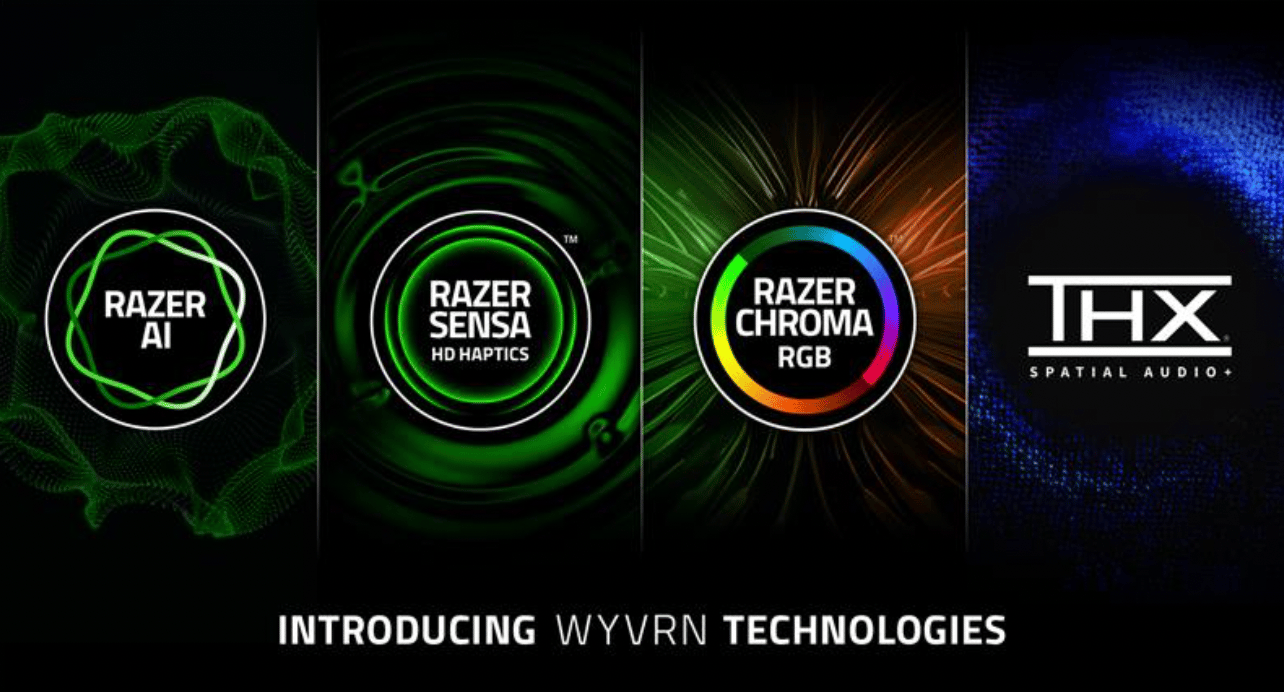NEW LAUNCHES
The latest features, products & partnerships in AI
IMPLEMENTATION
Announcements, strategies & case studies
GOVERNMENT
Law, regulation, defense, pilot programs & politics
IN OTHER NEWS
Compelling stories beyond the usual categories
Swap your to-do list for Motion the best AI calendar out there
Motion analyzes your commitments + tasks and automatically creates a schedule that maximizes your time. Try streamlining you schedule with Motion.
What’s happening in AI right now
Gaming's AI revolution begins

Razer
The gaming industry is embracing AI at a rapid clip amid workforce reductions across the sector. As major layoffs continue to affect studios, executives are simultaneously pushing for rapid AI adoption in game development, marketing, and player experiences, creating notable tension between business objectives and the creative workforce.
Quality assurance becoming first casualty
Razer's new Wyvrn platform offers a window into how AI could disrupt established workflows. The platform's AI QA Copilot claims to automate quality assurance testing, promising to identify more bugs while reducing QA time and costs. Game testing is historically an entry-level position that has provided many developers their first industry foothold and now appears directly in AI's crosshairs.
This matches the emerging pattern across industries where AI implementation begins by targeting tasks considered repetitive or straightforward. Quality assurance testing, with its methodical and often tedious workflow, presents an obvious target for automation.
For game studios under financial pressure, the appeal is undeniable. AI QA tools promise to reduce costs while potentially increasing testing coverage. Yet this immediate business benefit comes with a human cost, potentially eliminating an entire career path and disrupting the traditional talent pipeline.
Creative tensions emerge over AI voice replication
Meanwhile, creative professionals in gaming are pushing back against unauthorized AI replication of their work. Ashly Burch, the voice of Aloy in the "Horizon" franchise, publicly criticized a Sony tech demo featuring an AI imitation of her character. The demonstration which occurred amid an ongoing SAG-AFTRA strike against game companies, highlighted the central role of AI protections in current labor disputes.
Voice actors are demanding consent, fair compensation, and transparency regarding AI usage of their performances, concerns that mirror those raised by writers and actors in Hollywood's recent strikes. The timing of Sony's demo struck many as tone-deaf given the active strike, underscoring the gap between executive enthusiasm for AI and creative professionals concerns.
Player-facing AI tools expanding rapidly
Beyond development, AI's impact on the player experience continues to grow. NVIDIA's full launch of RTX Remix, an AI-powered modding platform for classic PC games, demonstrates how neural rendering can enhance older titles with ray tracing and improved textures. The technology has already seen impressive adoption, with over 30,000 modders creating ray-traced modifications for hundreds of games, reaching more than a million gamers.
This reflects a significant trend: democratizing tools that were previously available only to well-resourced development teams. When individuals can use AI to upscale textures or implement modern lighting in classic games, the barrier between professional and amateur content blurs like we are seeing across many domains from video to music.
Similarly, Razer's AI Gamer Copilot, another component of the Wyvrn platform, aims to provide real-time tactical suggestions for players, potentially reshaping how skills develop and games are experienced.
AI spreading across adjacent industries
The AI gaming revolution extends beyond game creation into adjacent activities. FanDuel has launched AceAI, the first generative AI sports betting chat experience in the gambling industry. This integrated Sportsbook app feature provides instant betting information, helps construct complex bets, and potentially promotes responsible gambling practices.
Meanwhile, a high-profile $1 million March Madness bracket challenge pits AI predictions against human expertise, highlighting AI's growing role in sports analytics. The contest positions AI as a "great equalizer" for average sports fans in data analysis, showing how AI tools are increasingly infiltrating domains traditionally dominated by human expertise and intuition.
Education and entertainment production following suit
This pattern extends beyond gaming. WeWillWrite, a new EdTech tool, uses AI and gamification to improve student writing skills through anonymous competitions. The platform offers real-time feedback, AI-powered analysis, and engaging writing prompts to address literacy challenges in American education.
In entertainment production, "Divergent" producer Pouya Shahbazian has launched Staircase Studios AI, aiming to disrupt traditional production methods. The studio plans to produce over 30 projects in the next 3-4 years using AI workflows, focusing on budgets under $500,000.
Hardware makers positioning for AI-centric future
Hardware manufacturers are also pivoting to support this AI-centric future. HP's launch of over 80 new AI-enabled devices across business, consumer, and gaming categories demonstrates the scale of industry commitment. These devices feature advanced hardware, enhanced security, and specialized AI software like HP AI Companion.
Looking ahead
As AI tools become more deeply embedded in gaming, from development to player experience to adjacent industries, several questions emerge:
Will disruption of entry-level positions like QA testing create a talent pipeline problem for the industry's future?
How will the tension between executive enthusiasm for AI adoption and creative professionals concerns be resolved?
Can smaller, AI-empowered studios successfully challenge established players by operating more efficiently?
Will players ultimately embrace AI-enhanced experiences, or will they push back against perceived automation of creativity?
The gaming industry's AI transformation offers a preview of challenges and opportunities that many creative industries will soon face. As with any technological revolution, the most successful adapters will likely be those who find ways to augment human creativity rather than replace it, leveraging AI's strengths while preserving the unique human elements that give games their soul.
We publish daily research, playbooks, and deep industry data breakdowns. Learn More Here


